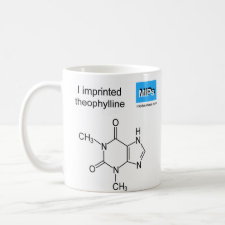
Authors: Li Y, Zhou WH, Yang HH, Wang XR
Article Title: Grafting of molecularly imprinted polymers from the surface of silica gel particles via reversible addition-fragmentation chain transfer polymerization: A selective sorbent for theophylline.
Publication date: 2009
Journal: Talanta
Volume: 79
Issue: (2)
Page numbers: 141-145.
DOI: 10.1016/j.talanta.2009.03.014
Alternative URL: http://www.sciencedirect.com/science/article/B6THP-4VW550V-2/2/86ddeae729f3602e7ac730cf4f50e9df
Abstract: Molecularly imprinted polymers (MIPs) were grafted successfully from the surface of silica gel particles via surface initiated reversible addition-fragmentation chain transfer (RAFT) polymerization using RAFT agent functionalized silica gel as the chain transfer agent. The intrinsic characteristics of the controlled/living polymerization mechanism of RAFT allowed for the effective control of the grafting process. Thus the grafting copolymerization of methacrylic acid and divinyl benzene in the presence of template theophylline led to thin MIP film coating silica gel (MIP-Silica). The thickness of MIP film prepared in this study is about 1.98ánm, which was calculated from the nitrogen sorption analysis results. Measured binding kinetics for theophylline to the MIP-Silica and MIPs prepared by conventional bulk polymerization demonstrated that MIP-Silica had improved mass-transfer properties. In addition, the theophylline-imprinted MIP-Silica was used as the sorbent in solid-phase extraction to determine theophylline in blood serum with satisfactory recovery higher than 90%. Nonspecific adsorption of interfering compounds can be eliminated by a simple elution with acetonitrile, without sacrificing the selective binding of theophylline
Template and target information: theophylline
Author keywords: Molecularly imprinted polymers, Reversible addition-fragmentation chain transfer polymerization, Grafting from, Solid-phase extraction



Join the Society for Molecular Imprinting

New items RSS feed
Sign-up for e-mail updates:
Choose between receiving an occasional newsletter or more frequent e-mail alerts.
Click here to go to the sign-up page.
Is your name elemental or peptidic? Enter your name and find out by clicking either of the buttons below!
Other products you may like:
 MIPdatabase
MIPdatabase









